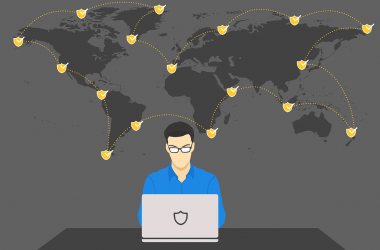
Breaking into cybersecurity can be both exciting and challenging. Whether you’re a fresh graduate or transitioning from another IT field, preparing for a cybersecurity analyst interview is key to landing your first role. To help you out, here are the top 5 interview questions you’re likely to encounter—along with insights into what interviewers are looking for and how to answer them like a pro.
1. What is the difference between a threat, vulnerability, and risk?
Why it’s asked:
This question tests your foundational knowledge of security concepts and your ability to distinguish between key terms that form the basis of risk management.
Sample Answer:
A threat is any potential danger that can exploit a weakness in a system. A vulnerability is a weakness or flaw that can be exploited. A risk is the potential loss or damage that could result when a threat exploits a vulnerability. For example, if a system has an unpatched software flaw (vulnerability), a hacker (threat) can exploit it, leading to data loss (risk).
2. How do you stay up to date with the latest cybersecurity threats?
Why it’s asked:
Cybersecurity is an ever-changing field. Employers want to see if you take initiative to stay current.
Sample Answer:
I regularly follow threat intelligence feeds like ThreatPost, Krebs on Security, and the SANS Internet Storm Center. I’m also active on Reddit threads and LinkedIn groups focused on cybersecurity. Additionally, I take online courses and attend webinars to keep up with evolving attack techniques and mitigation strategies.
3. Can you walk me through the steps you would take during a suspected security incident?
Why it’s asked:
This tests your understanding of incident response protocols and your ability to think clearly under pressure.
Sample Answer:
First, I would identify the incident through alerts or user reports. Then, I’d contain the breach to prevent further damage—possibly by isolating affected systems. Next, I’d eradicate the threat by removing malware or compromised accounts. Afterward, I’d recover systems and ensure they’re clean. Finally, I’d review logs, write a post-incident report, and implement controls to prevent recurrence.
4. What tools are you familiar with for monitoring and defending a network?
Why it’s asked:
Interviewers want to know if you’ve had hands-on experience with relevant tools.
Sample Answer:
I’ve worked with SIEM tools like Splunk and AlienVault for log analysis and real-time threat monitoring. I also have experience using Wireshark for packet analysis and Snort for intrusion detection. On the endpoint side, I’ve used CrowdStrike and Microsoft Defender for threat detection and response.
5. How would you secure a workstation connected to a public Wi-Fi network?
Why it’s asked:
This tests your practical security mindset and ability to think critically about endpoint protection.
Sample Answer:
I would ensure the firewall is active and updated, use a reputable VPN to encrypt traffic, and disable sharing services like file and printer sharing. I’d also verify that antivirus and endpoint protection software are running, and ensure the system only connects to trusted networks by disabling auto-connect features.
Final Thoughts
Interviewing for a cybersecurity analyst position doesn’t have to be intimidating. With the right preparation and understanding of what hiring managers are looking for, you can confidently tackle any question thrown your way. Focus on demonstrating both technical knowledge and problem-solving abilities. And don’t forget—good communication is just as important as technical skills in this field.
Have you faced any tough cybersecurity interview questions recently? Drop them in the comments below—we’d love to help you out!


